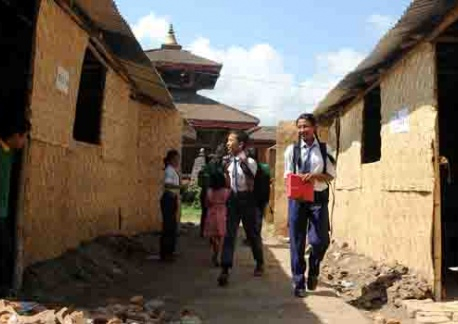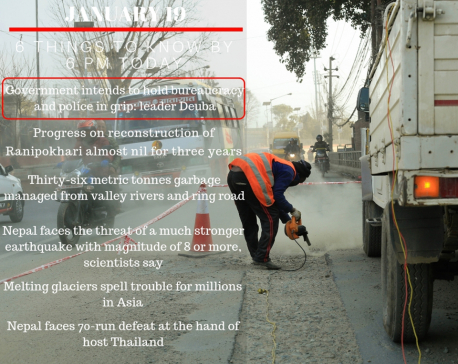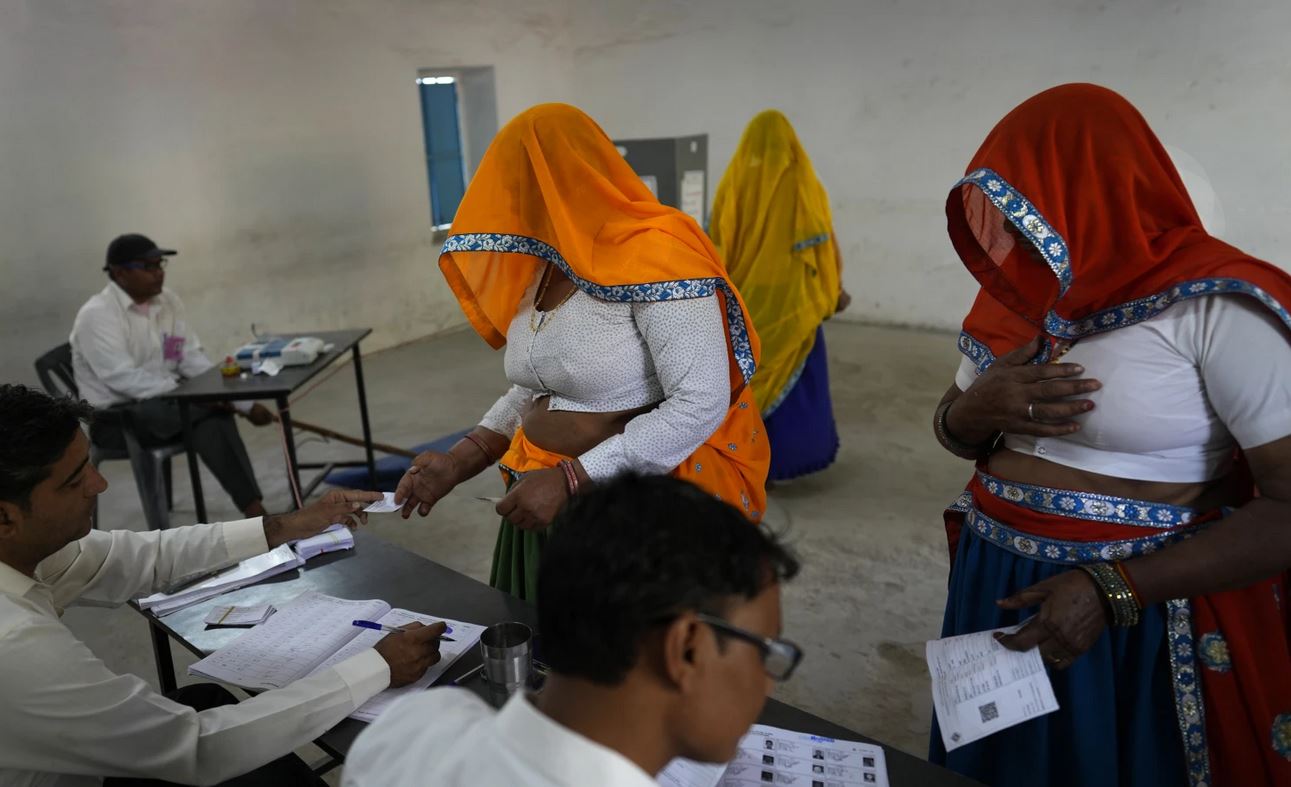
OR
11,000 quake-hit houses rebuilt in Rasuwa
Published On: November 10, 2020 02:16 PM NPT By: HIMNATH DEVKOTA

The landless squatters are yet to begin reconstructing their houses owing to financial crunch
RASUWA, Nov 10: As many as 11,000 houses which were destroyed by the massive earthquake in 2015 have been rebuilt in Rasuwa.
Of the 12,819 houses to be reconstructed, the construction of 86.65 percent --11,108 houses -- has so far been completed, according to the District Project Implementation Unit, Grants Management and Local Infrastructure Office, Rasuwa.
According to the office, of the 12,819 beneficiaries who had signed contracts for the reconstruction of their quake-hit houses, 12,180 had been paid the first installment while 11,608 had been paid the second tranche of the housing grant. Though it has already been five years since the country was shaken by the massive quake, nearly 2,000 houses are yet to be rebuilt in Rasuwa district.
The National Reconstruction Authority (NRA) earlier on November 8 set the final deadline to receive the housing grant for those who lost their houses in the earthquakes of 2015. The NRA said that all eligible housing grant and retrofitting beneficiaries will now have to sign an agreement with the NRA by December 15 and acquire the first tranche of the grant by December 30. As many as 639 beneficiaries have not yet received their first tranche of the grant in the district.
There are some 300 quake-victims who had spent Rs 50,000 of the first tranche of the grant to manage their household expenses but not build their houses. Most of such beneficiaries are landless and economically weak who could not proceed their house construction with the first installment. “We could not buy all necessary construction materials nor did we have an economic source, therefore we spent it for our daily expenses,” said one of the beneficiaries.
The authorities in the district cite various reasons for not having the reconstruction completed on time. They say that various problems ranging from poor management of the landless squatters to the lack of land for relocation from the vulnerable zones to exclusion of ‘real victims’ in the list of beneficiaries have been obstructing the timely completion of the reconstruction works. Similarly, there are some beneficiaries who had received the grants but did not build their houses. “In recent days, reconstruction has been affected by the COVID-19 pandemic,” said Bishwas Nepali, the district coordinator of Digo Samadhan, an organization which has been facilitating the quake victims especially the landless and displaced ones. He also shared that such households have been provided with Rs 200,000 as land grant and Rs 300,000 as housing grant. “However, the amount provided by the government is not sufficient as they are not capable of making additional investment. Therefore, the government should take the responsibility of making necessary arrangements for the construction of their houses,” Nepali added.
You May Like This

Reconstruction of 4,476 schools completes
Kathmandu, April 23: The reconstruction of 4,476 schools that were damaged by the April 25, 2015 Gorkha Earthquake and its... Read More...

Jan 19: 6 things to know by 6 PM today
Your daily dose of missed important news of the day. ... Read More...

Just In
- Indians vote in the first phase of the world’s largest election as Modi seeks a third term
- Kushal Dixit selected for London Marathon
- Nepal faces Hong Kong today for ACC Emerging Teams Asia Cup
- 286 new industries registered in Nepal in first nine months of current FY, attracting Rs 165 billion investment
- UML's National Convention Representatives Council meeting today
- Gandaki Province CM assigns ministerial portfolios to Hari Bahadur Chuman and Deepak Manange
- 352 climbers obtain permits to ascend Mount Everest this season
- 16 candidates shortlisted for CEO position at Nepal Tourism Board






_20220508065243.jpg)











Leave A Comment